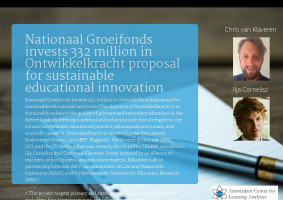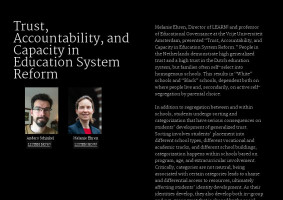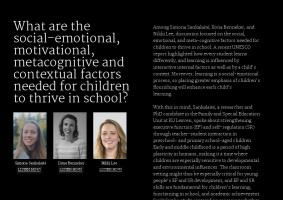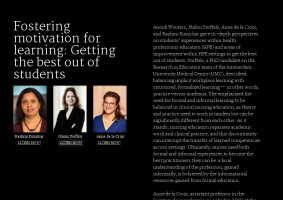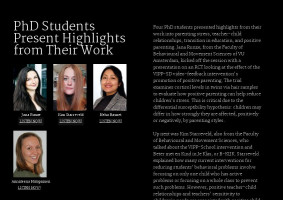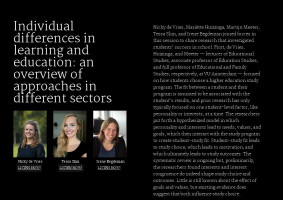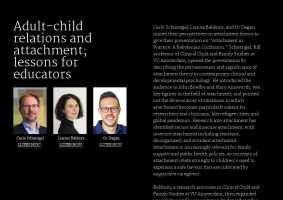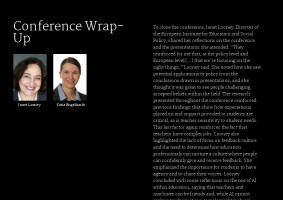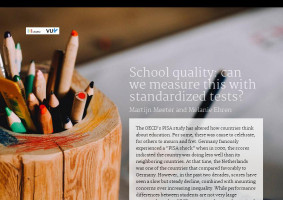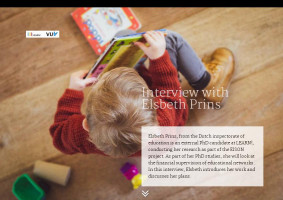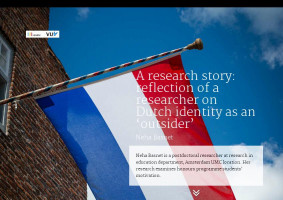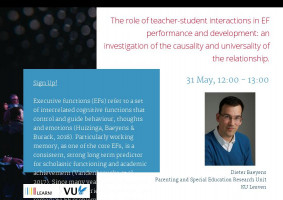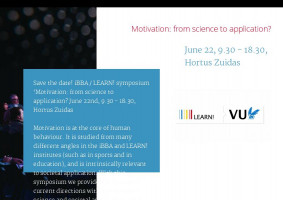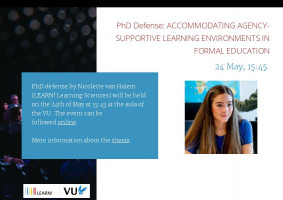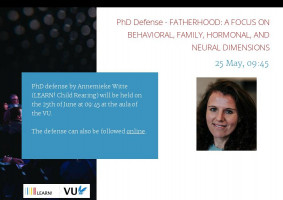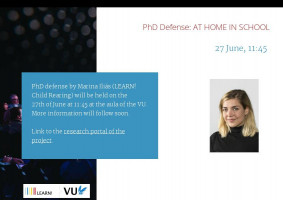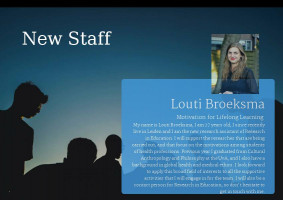Among Simona Sankalaité, Ilona Benneker, and Nikki Lee, discussion focused on the social, emotional, and meta-cognitive factors needed for children to thrive in school. A recent UNESCO report highlighted how every student learns differently, and learning is influenced by interactive internal factors as well as by a child’s context. Moreover, learning is a social-emotional process, so placing greater emphasis of children’s flourishing will enhance each child’s learning.
With this in mind, Sankalaité, a researcher and PhD candidate in the Family and Special Education Unit at KU Leuven, spoke about strengthening executive function (EF) and self-regulation (SR) through teacher-student interaction in preschool- and primary school-aged children. Early and middle childhood is a period of high plasticity in humans, making it a time where children are especially sensitive to developmental and environmental influences. The classroom setting might thus be especially critical for young people’s EF and SR development, and EF and SR skills are fundamental for children’s learning, functioning in school, and academic achievement. Sankalaité’s study centered on assessing whether school- or class-wide interventions are effective, and she found that all of the EF and SR components studied are trainable and mutable. She concluded by highlighting the need for more research into interventions’ direct influence on children’s EF and SR performance.
Next, Benneker, PhD candidate in the Faculty of Behavioural and Movement Sciences at VU Amsterdam, discussed school burnout and autonomous motivation during home-based learning. Autonomous motivation is intrinsic, identified motivation; school burnout is exhaustion at school and associated cynicism and feelings of inadequacy. During the pandemic, the home environment has become more important to education, and students’ mindset, self-efficacy, affective state, interactions with parents, and support from parents have served as protective factors against burnout. Benneker found that intrapersonal factors and home environment were important for both burnout and autonomous motivation, and during future periods of home-based learning, teachers and parents should pay attention to young people’s affect and encourage self-efficacy. Parents especially need to be aware of the importance of their support in preventing burnout and promoting autonomous motivation in their children.
Lee, assistant professor of Clinical Developmental Psychology at VU Amsterdam, gave the closing presentation for this session focusing on why peers matter and the influences peers have on adolescents’ social-emotional and cognitive development. Adolescence is a period of transition, with many cognitive, social, and emotional changes that affect how adolescents adapt their social-emotional behavior to their social environments. Lee shared findings from two studies; the first centered on the effects of behavioral norms and levels of social support on the development of EF during adolescence. Lee found that overt EF behaviors, like inhibition and emotion regulation, change as a result of classroom norms, and that the role of social support may differ between childhood and adolescence. The second study focuses on whether peer feedback can influence adolescent cognitive control, and bringing the social context into the lab provides important information on adolescent development despite the challenges such an effort poses.
(1)_w200_h280_1.png)
Listen now!
(5)_w200_h280_1.jpg)
Listen now!
(1)(1)_w200_h280_1.jpg)
Listen now!



